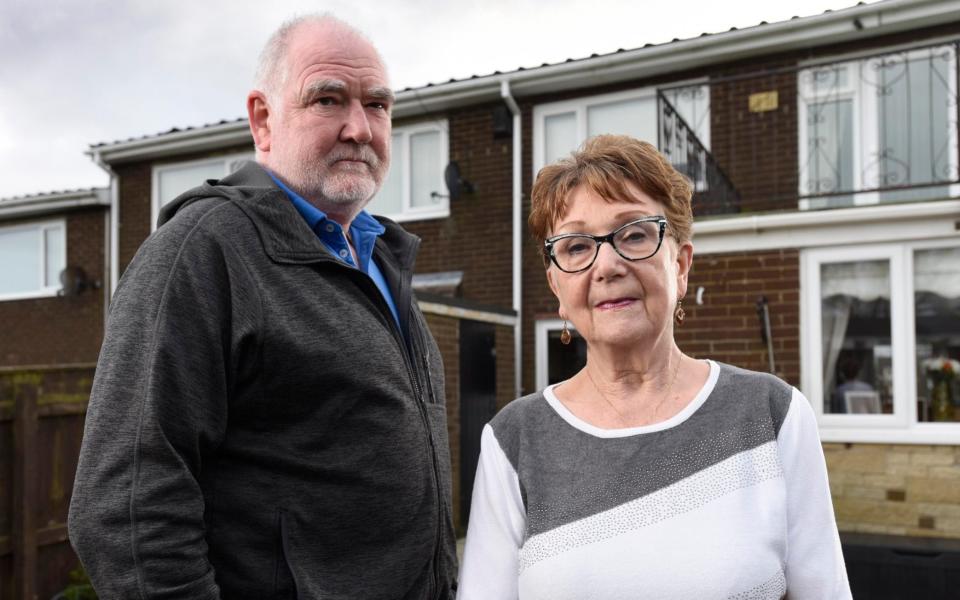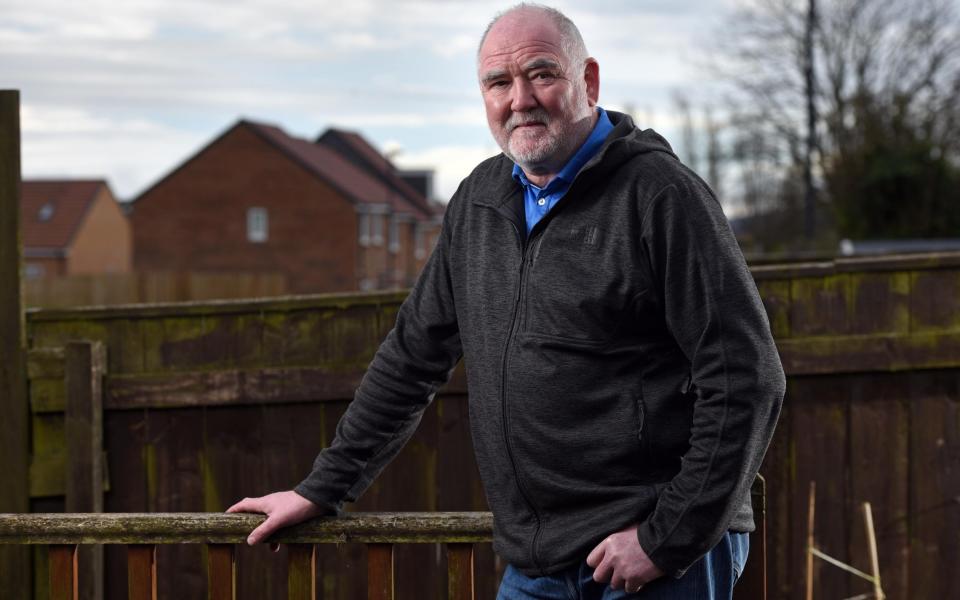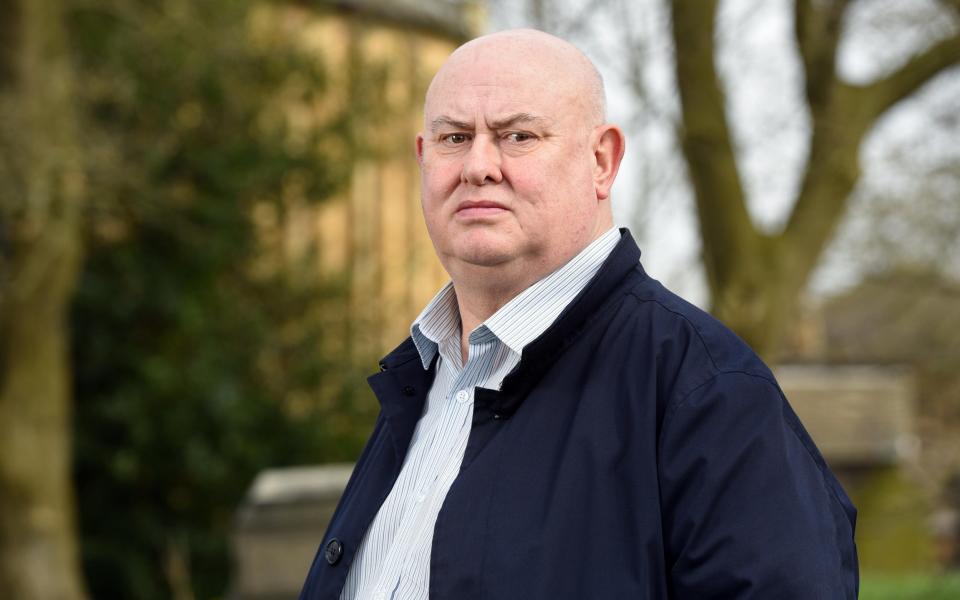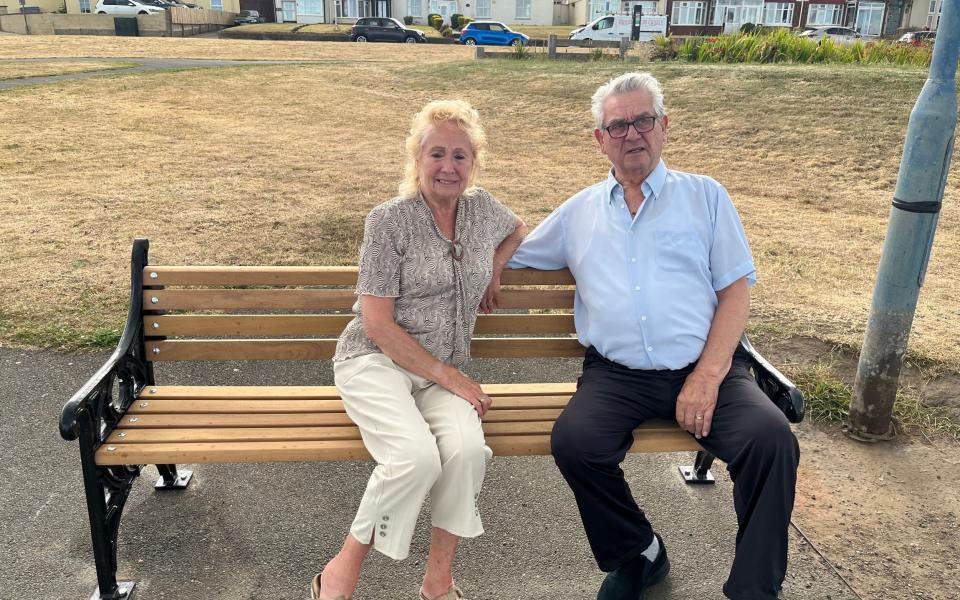‘We lost £105,000 after putting our life savings in a trust – our disabled son will suffer’

When Kathleen Birtley wandered into her local building society branch 10 years ago to renew her passbook, she wasn’t expecting to walk out with a noose around her life savings.
A Newcastle Building Society clerk took the opportunity to approach the newly widowed mother and tell her she should think about putting her home and savings into trust, after discovering she already had a will.
“In the event that you go into care, this will ringfence your assets and keep them safe for your disabled son,” she recalls hearing.
Mrs Birtley, then in her early 70s and living in a Northumberland village on Hadrian’s Wall, claims she was swept into a room in the back of the branch and introduced to her “money manager” – a financial adviser – on commission, although the fee was not linked to any assets placed into trust.
The adviser proceeded to deliver a spiel on trusts, an unregulated financial product, and who charged an additional £600 for his time.
She agreed, not realising that they would soon hand her over to totally separate third-parties called The Will Writing Company and Family Trust Corporation in return for 15pc of all fees they charged.
Just two months later, Mrs Birtley set up an investment fund in trust to be held by Family Trust. Alongside her home, she then began pouring her life savings – some £105,000 – into it.
But in late 2018, The Will Writing Company and Family Trust announced plans to shut down and her money was reassigned to another third-party – the Philips Trust Corporation.
Shortly after the takeover began, Newcastle Building Society wrote to her in a letter seen by The Telegraph with reassurances that there was “no risk” to her property and assets.
In the months that followed, Philips Trust cashed in her investment plan, extracted her money and spread it across bonds which would later default and leave her with nothing.
Some £138m belonging to 2,345 building society customers was tied up in Philips Trust when it went into administration in April 2022.
Other building societies whose customers say they were caught up in the scandal include Leeds, Nottingham, Cambridge, Saffron, Marsden, Hanley Economic, Vernon, Melton Mowbray, and Dudley – according to solicitor Claire Springle, who has been helping victims.
Around £44m was investments, and the rest was property. While some customers have been able to pay thousands of pounds to get their families’ homes back out of the trusts, others have not been so lucky.
The trust deeds state that Philips Trust should hand over any sales proceeds, but families who have sold properties still in trust are yet to see a penny.
FCA warned of ‘ponzi scheme’ in 2020
“Devastated”, “shattered”, and “scarred” are just some of the words relatives and friends of these building society customers have used to describe the utter turmoil these introductions have thrown them into.
So far, according to Philips Trust’s administrators Kroll, £14.5m of the £15.5m bonds which have matured to date – out of the £44m total – have defaulted.
A salesman working for Philips Trust blew the whistle on the operation in October 2020, telling the Financial Conduct Authority (FCA) it was “in effect a ponzi scheme” in a letter seen by the Yorkshire Post – the first paper to expose the scandal.
The FCA launched a review into the allegations, but no actions were taken because the firm was never authorised and therefore fell outside its remit.
Since then, the FCA has confirmed it will not investigate any of the 10 building societies that introduced customers to unregulated trusts. It said it “can’t hold the building societies responsible for the actions of Philips Trust”, and that making the introductions has not breached any of its principles for business.
It also told The Telegraph: “We do not decide what activities fall within our remit. Legislation expressly excludes this type of estate planning trust services.
“Some of the building societies involved have told us that they are engaged with the administrators to explore some possible support to affected customers on a voluntary basis.”

But this isn’t good enough, according to Peter Grant – MP for Glenrothes in Fife, Scotland. On a call organised by the Transparency Task Force for victims, attended by The Telegraph, Mr Grant said the City watchdog “is still too willing to be persuaded by the building societies that ‘there’s nothing to see here”.
He added: “We need new legislation to prevent this spider’s web and unfollowable trail…The FCA takes a very literal and narrow view of its responsibilities.”
‘Every customer affected was over the age of 60’
Mrs Birtley, now 83, has a disabled son in his 40s. She has had to spend £3,500 to get her house back into her own name, but she has no idea whether any of her £105,000 savings will be salvageable.
She understands that the money extracted from Philips Trust so far will have to go straight towards paying the administrators’ £2.95m fees, because only £1.5m has been recovered to date.
“My husband worked hard overseas – away from the family for most of the time – with the aim of saving enough money to ensure our disabled son could be looked after when we passed. What’s happened is not fair on me or my family.”

Mrs Birtley’s husband was a plumbing engineer who worked out in the Middle East. He passed away in 2014 from motor neurone disease. Her son-in-law, Gordon Crosthwaite, has been actively campaigning on her and other victims’ behalf.
He said every single one was over 60 years old when they were introduced to trusts by their building societies. “They thought the trusts were safe. The building societies didn’t tell them they weren’t.”
‘£180,000 transferred to a different customer’
Mary Ledgard, mother of John and David Ledgard, was a customer of Leeds Building Society. In 2014, she went into her local branch with her passport to take some money out for her grandchildren. While she was there, the clerk suggested she should consider writing a will – but she told them she already had one.
It was then, she claimed to her sons, that the clerk warned her care homes were very expensive, and that she could lose her house if she didn’t think about putting it in a trust. The clerk took her upstairs to meet employees of Family Trust’s umbrella firm, Estate Planning Group. A few months later her house was put into a trust with Family Trust.
Mary died in May 2021. By November of that year, her house had sold for £180,000. Her two sons have seen none of this money, despite John being an executor of Mary’s will and a beneficiary of the trust.
He was told by Philips Trust that sale proceeds were transferred to a different customer. In the High Court, one of the firm’s former directors – Kaye Collins – admitted in her witness statement that at least £800,000 worth of property sales had been used to pay other customers who moved their money out of trust, rather than being transferred to rightful beneficiaries.

David Compston, a close friend of the family who is representing the brothers, said: “What a crazy business model for a building society. It’s suicidal. Letting people go upstairs so they can pour their money into unregulated investments. The building societies have a duty of care.
“The brothers feel like they let Mary down. They’re not the only ones. We know of two others whose parents’ houses were sold and the money given to ‘somebody else’ too.
“We wouldn’t be here if it wasn’t for the building societies. They promoted a false idea that people could safeguard themselves from care home fees,” he claimed, adding: “The contracts don’t even mention this as a feature of a trust.”

‘Without the building societies’ involvement, this wouldn’t have happened’
David Turner, aged 59, has lost his father’s £170,000 legacy to the scandal. Norman Turner, another customer of Newcastle Building Society, used to work 12-hour shifts, six or seven days a week on an oil rig construction. David barely saw him growing up.
His son said: “My father and my mother, Ann, were a risk averse couple. They built their own house.
“Newcastle Building Society told them it would be a good idea to put their house into trust, along with their savings, to protect themselves from inheritance tax and probate.
“Now, all their money has been lost on stupid, high-risk investments. My father is scarred. Without the building societies’ involvement, none of this would have happened.”

A salesman from Family Trust visited Norman and Ann at their home in 2013 after Newcastle Building Society made the introduction.
The trust cost Norman £4,000 to set up. It saw his Prudential bonds, which were generating around £700 each month based on annual returns between 8pc and 10pc, transferred to Family Trust.
The £700-a-month kept coming in, even when money was transferred to Philips Trust in early 2019. It wasn’t until March 2023 that the income suddenly stopped.
Mr Turner said: “My father called me very concerned. They relied on this drawdown to pay their bills and buy food. I tried contacting Philips Trust by phone but got no answer. We received an automated email response – that set alarms bells ringing.
“I started looking online and on TrustPilot where I found many similar people who were not receiving their monthly payments and could not make contact with the company.”
Mr Turner’s parents will both turn 83 this summer. They are devastated. These were their life earnings.
Where has the money gone?
Kroll, Philips Trust’s administrators, have been trying to track down customers’ money for nearly two years.
So far, they have deduced that money held by Family Trust was moved in its entirety from stocks and shares investments with popular fund management platforms into bonds with four investment management companies: Berkeley Rutherford, CX Wealth, Float and Woodville.
This began in April 2018, after Philips Trust was incorporated in December 2017 and later took over a portion of its clients.
At the end of 2018, the role of trustee began switching from Family Trust to Philips Trust. Customers were told in letters seen by The Telegraph that Family Trust was closing down. The company is still active today and acknowledged The Telegraph’s request for comment.
Sources alleged that Family Trust received a commission for every customer it moved over to Philips Trust – but the company told The Telegraph it has never received any such commission.
Philips Trust’s books were in disarray when Kroll entered the scene. Not all customers’ trustees had been reassigned, and for months the company had failed to keep records for customers and had not tracked their balances.
With £14.5m in default out of £15.5m in bonds which have matured so far, Kroll is now waiting for a further £12m to mature this month.
Building societies: ‘We never had a relationship with Philips Trust’
Building societies have pointed The Telegraph to the FCA’s official statement, that “it was the actions of Philips Trust, not the building societies, which caused customers to experience investment losses.”
The City watchdog has also highlighted that Philips Trust “did not exist at the point that the building societies referred customers to the Estate Planning Group [the umbrella firm for FTC and The Will Writing Company].”
A Newcastle Building Society spokesman said: “The society is very concerned by, and sympathetic to, the difficult situation faced by people who have been affected by Philips Trust.
“We have never had a relationship with, nor at any point have we referred our customers to Philips Trust, which did not exist at the time we introduced customers to The Will Writing Company.
“In January 2019, we wrote to customers we understood had taken a trust with Family Trust,” the spokesman added, referring to an option the building society gave customers where they could place their assets with the Co-op instead of Philips Trust.
But because the building society said there was “no risk” to customers’ properties and assets, many say they didn’t think twice.
Newcastle Building Society’s introducer arrangement with Family Trust ceased in November 2017. Despite claims from customers about what they deemed to be advice from their money managers on setting up trusts, the building society denies ever providing any advice on these products itself.
A spokesman for Leeds Building Society said: “We’re deeply saddened by what has happened to customers of the Philips Trust and the impact it is having on some current or former members and their families.
“We had no relationship or involvement with Philips Trust and never recommended the firm to customers. As the FCA concluded, it is the actions of Philips Trust that have caused the expected investment losses.
“We’re seeking to find out how many people affected by those losses were referred by the society and subsequently set up a trust which later transferred to Philips Trust. We’re doing this to better understand whether we may be able to financially support those customers impacted on a voluntary basis.”
The Financial Ombudsman Service said it “may be able to consider a complaint against a building society depending on the individual circumstances of the case”.
So far, cases brought to it by victims have been rejected on the basis that trusts are unregulated products.
Geoff Bouchier, managing director of Kroll said: “The Administrators from Kroll continue to conduct the Philips Trust Corporation case as efficiently as possible with the aim of achieving the best outcome for Philips Trust’s clients and creditors.
“We recognise the significant impact this situation has caused, and we sympathise with those affected.”
Recommended
How to set up a trust to protect your money (and avoid inheritance tax)

 Yahoo Finance
Yahoo Finance 